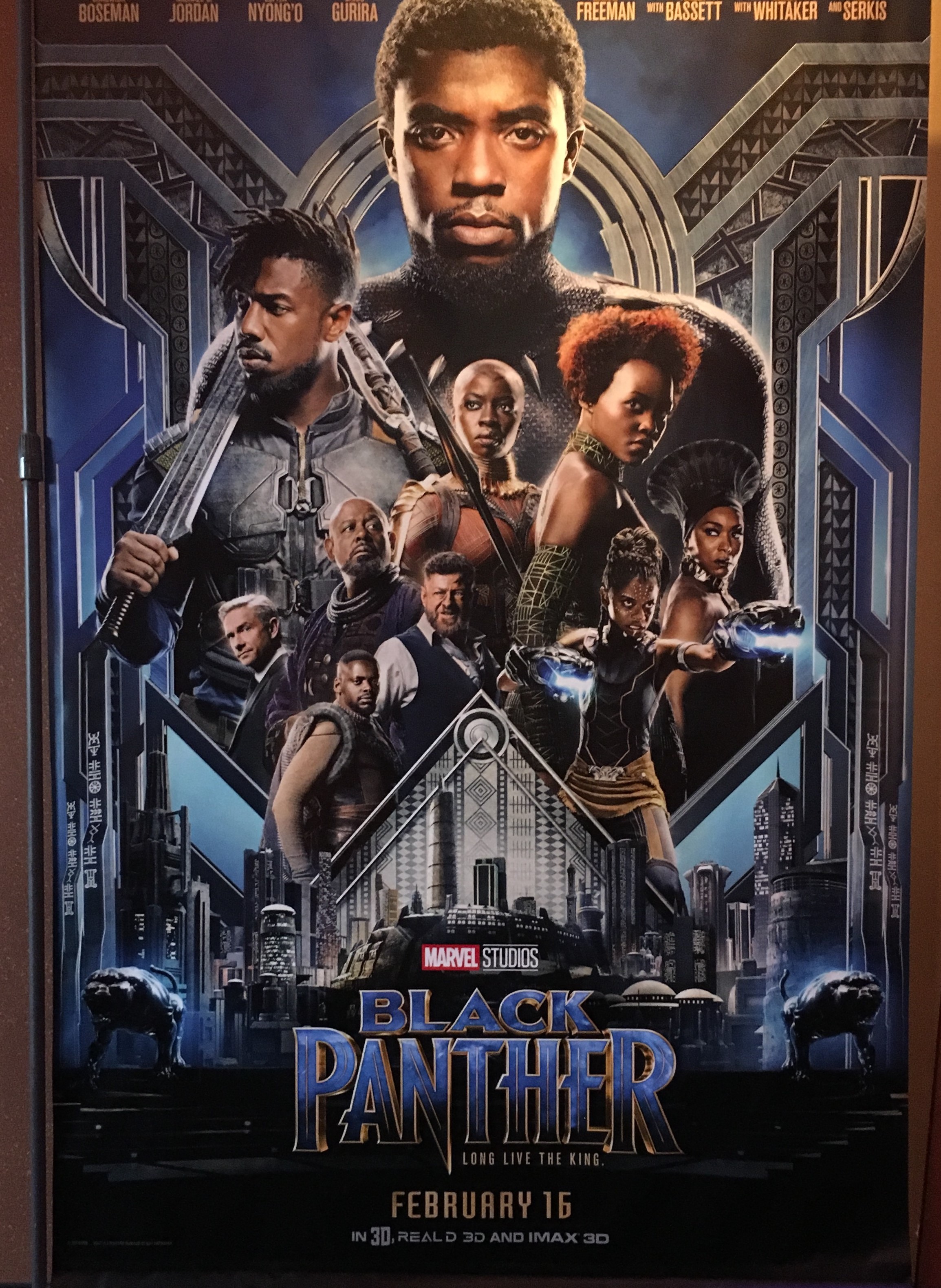Black Panther Offers a Unique View of African Culture

On the 16 of February, a Friday night, Marvel’s “Black Panther” would be making its debut to the public. I had taken my seat 30 minutes before the show actually started, placing myself in the middle of a relatively empty theater.
As the lights dimmed and the movie screen lit up, an excited energy filled the air. I realized how quickly the theater had filled up with people anxious to experience the journey “Black Pan-
ther” would take us on.
Annoyed as I was at the person who was sitting next to me, obnoxiously chowing down on a bag of popcorn, I could not help but immediately be thrown into the story. The characters quickly revealed themselves. From the opening backstory to the first shot of kids playing a game of basketball, as the viewer, I was completely hooked.
I wanted to know more about Wakanda and the five tribes that protect it. About seven minutes into the movie we meet the Black Panther, prince of Wakanda T’Challa, played by actor Chadwick Boseman.
From the very start, it was remarkably noticeable this character had a mind of his own and a heart even bigger, which immediately connected with the viewers.
Throughout the story T’Challa battles for his life, the lives of his family, and the existence of the Wakanda nation. To most, the African nation of Wakanda is a poor and desolate place.
However, hidden from sight and guarded by
the five tribes lies the true source of Wakanda’s
power, vibranium.
As the story unfolds, King T’Challa partners with his trusted General, Okoye (Danai Gurira), his tech savvy sister Shuri (Letitia Wright), and his ex-girlfriend Nakia (Lupita Nyong’o) who is one of Wakanda’s best operatives. They are working to capture the notorious arms dealer Ulysses Klaue (Andy Serkis), who stole a portion of Wakanda’s most precious vibranium.
The movie takes on the stereotypical role of the hero’s journey. T’Challa is forced into a situation that he didn’t ask for, he makes unlikely allies along the way, Everett K. Ross (Martin Freeman), who help him navigate the ask at hand.
There is the hero’s downfall when we saw T’Challa being pushed beyond his limits. But a moment of victory when he finds that inner strength and rises above.
T’Challa is both mentally and physically challenged, pushing his limits and discovering just where his loyalty lies.
There is plenty of action and adventure throughout the film. Director Ryan Coogler helped co-write the film with Joe Robert Cole exceeding expectations in adapting the iconic comic book into a film.
Along with Hannah Beachler’s astonishing production design and Ruth Carter’s lavish costume choices, the film is rooted in African history. Yet, somehow the story also takes on a more modern theme creating a symmetrical film
dynamic.
Ideas of self-government, colonialism, and the dispersing of a people from their original homeland are threaded throughout the production.
In turn, setting the film apart from the prototypical superhero tale.
Because of the film’s many motifs a sense of urgency and purposeful actions control the center of the plot. This creates a platform for which the viewer can relate and connect with each character, adding more depth to the film as a whole.
Coogler wasted no time in creating an infrastructure for the viewer to feed off of. Combining ancient African history and culture yet constructed in contemporary film linguistics.